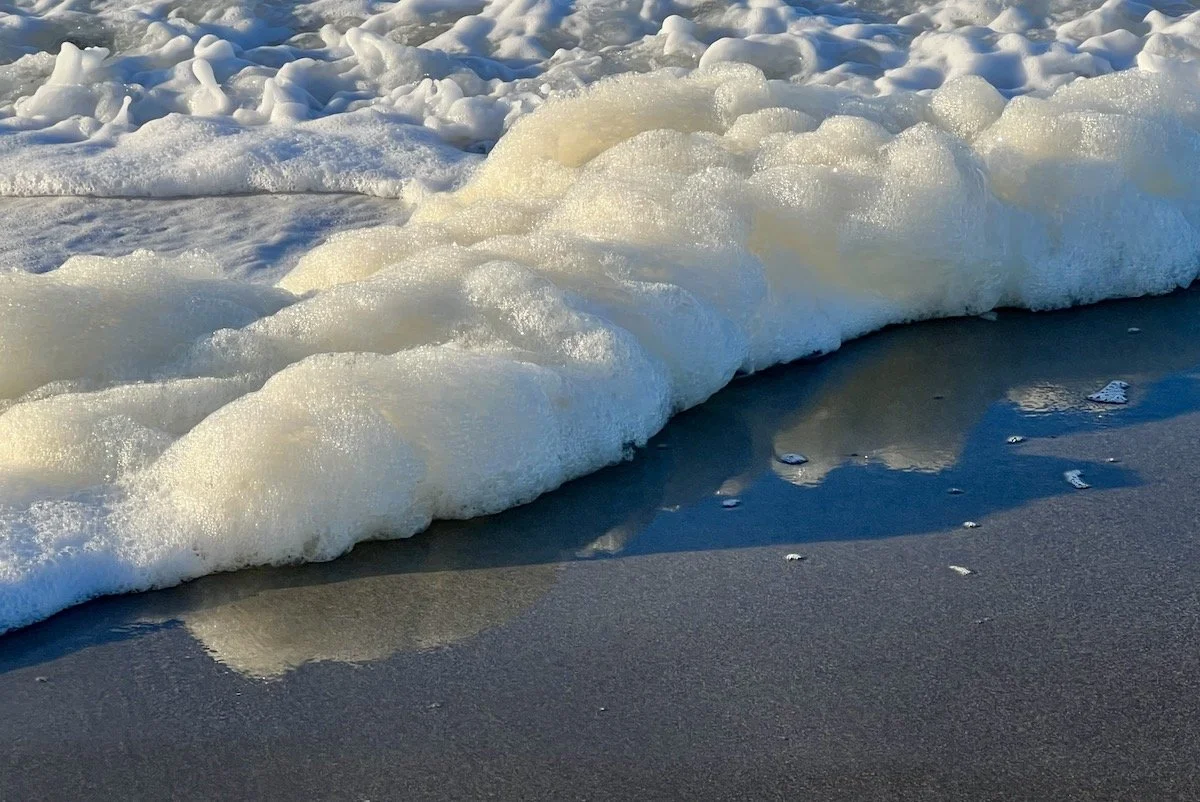Finding, Giving a Way
“Hexagram 47: Confining/Oppression:
Confining shows an old, dilapidated house or a great open mouth in which a tree is confined…
There is a breakdown of communication and you are being isolated by it…
This oppression is exactly what teaches you about… the power to find what is Great and rely on it.”
Two years ago, an exquisite wild bird appeared and came near. At the time I thought she was a goshawk: only recently did I realize that she’s actually a red-shouldered hawk. Now that she’s an adult, her spectacular ruddy chest and striped tail are unmistakable. In my excitement, I didn’t see her for who she is.
She spends her days skimming the meadows north of here, and hunting along the hill and cliff that slope from my house to the ocean. Most mornings, she surveys the garden from the roof, or she perches on the railing of the deck. In late afternoon, she rests on the horizontal branches of a large pine at the other side of the house. That first winter, she spent weeks in this rhythm, roof to railing to branch to meadow, until one day in late March she vanished. I knew she was likely nesting somewhere nearby, but still, I felt bereft. I wanted to cling to her presence because seeing her reassured me that in my little corner of the beleaguered world, wildness remained intact, and close.
That first year, she seemed relaxed around humans. If I moved slowly, and especially if I sat still and ignored her, I could sit outside and write (well, watch the hawk) as she dozed on the railing about ten feet away. After a few weeks, I could come in and out of the house or even do some slow, gentle yoga on the deck and she wouldn’t fly off.
Her continued absence last year convinced me she’d left for good, and I let go of the hope she’d return. Then, this past Thanksgiving, suddenly, there she was. Her rhythm was the same. The world felt right again.
A few days ago, as she sat in her usual corner of the railing, fluffed, and relaxed in the morning sun, I slowly opened the sliding door a few inches and spoke to her softly. I wanted to welcome her, to celebrate the excitement of her return and express the comfort of having her near. I wanted to give something of myself in praise of our proximity. At the sound of my voice, she startled and flew away. I had thought she would remember. Instead, I frightened her.
I had told myself that the excitement I felt was about loving the hawk, and I do, but fundamentally my gesture was another iteration of human hubris: it was about me and what I wanted at that moment. Even these sentences are replete with I and me. The wanting that impelled me to open the door and speak to the hawk comes from the desperation of worry for the Natural World and all the ways She remains under siege.
And as sometimes happens, the dilemma expressed by my personal blunder appeared in the headlines, in the breathless coverage of the maneuvering and, ultimately, the ‘success’ of the recent biodiversity conference held in Canada. Are we supposed to celebrate that those climate talks produced a voluntary, and therefore unenforceable preservation of 30% of Earth’s biodiversity? At present, a mere 17% of intact Earth remains, so, at first, 30% seems like progress. But really, thirty percent is a paltry, death-sentence shame, partly because it misses the point of the changes required, and partly because it won’t be achieved because Western industrial culture relies on resource extraction and there is no alternative economic structure to replace it – nor is there a recognition that this is what’s required, let alone meaningful conversation about how we get there. In the meantime, business and government are the foxes guarding the hen house. We don’t need another treaty, we need a different culture, and that takes consciousness, not negotiation. As I just found out, desperation is a shortcut to poorly considered action.
This dissonance confines us: the trappings of this culture of death that we live in are, in fact, what trap us. We are caught in the space between what we know and what we know. As the climate collapses and extinctions rise, our desperation makes us impulsive.
Perhaps, as the I Ching reminds us, this sense of confinement is exactly what we need: perhaps if we turn towards it, we can shift our alignment. In the meantime, what to do with the exuberance of awe at the Natural World? How to contain it without dilution?
The cousin of desperation is longing; longing is a confluence of memory and love that goes all the way back to Source. If we accept the confinement of what we have done, or, rather, undone, we may find our way to the truth of our deeper knowing. Confinement forces us to whittle away at our confusion until only love remains. There is a saying that love attracts anything unlike itself. Maybe that’s the key to distinguishing the symptoms of desperation and hubris from the disease of despair. When the love is clear, it moves freely, simultaneously concentrated and diffused. When the love is clear, it does not intrude or manipulate.
The world we have created confines us. In response, especially during this time of darkness in dark times, we can choose to confine ourselves, internally, until false motivations fall away, and gratitude and awe are what guide us, unimpeded by habits of expedience.
